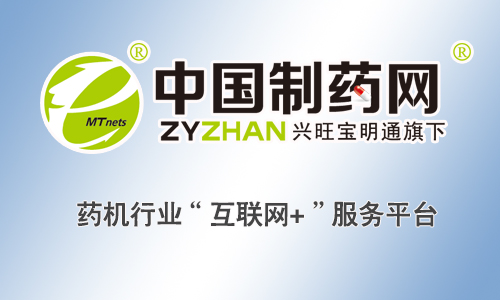[China Pharmaceutical Network Health and Wellness] Doctors mainly consider the efficacy of drugs in the treatment of high blood pressure, and do not pay attention to the adverse reactions of drugs to patients. Especially when patients with hypertension have complications or are associated with other diseases, they need to use multiple drugs at the same time, which is more likely to cause adverse effects. So how to rationally apply multiple drugs, and reduce or even avoid adverse reactions? The commonly used adverse reactions and treatments of several drugs are briefly described as follows:

Diuretic adverse reactions
Hypokalemia
Because diuretics cause hypokalemia caused by increased potassium excretion in the kidneys, the main symptoms are limb weakness, and a few patients have various arrhythmias.
If you usually pay attention to the intake of fruits and vegetables containing potassium and magnesium, it will not be caused, but if the patient has unexplained fatigue during the medication, he should check the blood potassium in time. If the blood potassium level is reduced, it is necessary to supplement potassium chloride in time, and eat less sugary foods, eat more fruits and vegetables. Blood potassium and sodium should be monitored regularly, and attention should be paid to maintaining the balance between water and electrolytes, especially in high-risk groups such as the elderly. Pay attention to timely potassium supplementation.
2. Hyponatremia
Caused by increased urinary sodium excretion, manifested as nausea, vomiting, general malaise, dizziness, lethargy, confusion, polyuria or oliguria or even no urine, daily diet is less prone to hyponatremia.
The study found that [1], about 30% of patients will have hyponatremia after long-term use of diuretics, and the incidence of hyponatremia is five times higher when taking thiazide for a long time. Factors affecting hyponatremia also include age, body mass index, and glomerular filtration rate.
3. Hypotension
It is caused by frequent urination and no timely replenishment of water, which is characterized by dry mouth, fatigue, syncope, etc., especially when used together with vasodilators. Some patients are very sensitive to diuretics, which can cause a lot of urination. Therefore, diuretics should start with a small dose, and pay attention to the right amount of drinking water, blood pressure should be measured at the right time, generally diuretics should not be used with vasodilators.
Diuretics cause low potassium, low sodium and hypotension at the same time when a large amount of urination occurs. This is a serious group of adverse reactions and emergencies and should be vigilant.
4. Hyperuricemia
Some patients have mild elevation of blood uric acid in the short term after taking the drug, but long-term treatment with small doses can mostly return to normal. Diuretics generally do not cause gout, but the original gout patients may induce gout attacks such as joint swelling. Patients with hyperuricemia and gout should not use diuretics.
The elevated blood glucose after <br> <br> with hydrochlorothiazide for 3 weeks, may be relatively higher than that before treatment fasting glucose, hyperglycemia, and it is generally not preferred diuretics diabetes. Indapamide can interfere with glucose metabolism in some patients, and abnormal glucose tolerance occurs. Patients with hypertension with impaired glucose tolerance should review their blood glucose regularly.
The above adverse reactions often occur in large doses of diuretics and long-term use, and small doses generally do not cause adverse reactions. Eat more fruits and vegetables and add water during the application of diuretics. If diuretics are used together with ACEI or ARB, adverse reactions such as hypokalemia can be reduced.
6, renal insufficiency <br> <br> different diuretics can cause direct or indirect change in renal hemodynamics, leading to reduced renal perfusion, glomerular filtration rate, and may even lead to serious tubular necrosis [2]. When thiazide diuretics are contraindicated when hypertension is associated with moderate to severe renal insufficiency, furosemide can be used instead. Indapamide is contraindicated in those who are allergic to sulfa drugs, and its slow release agents have fewer side effects.
Angiotensin-converting enzyme inhibitor adverse reactions
Cough
The most common adverse reactions, the incidence of different formulations is different. Mostly dry cough, more severe, the effect of cough medicine is poor, the cough response can be stopped after 1 to 3 weeks, no special treatment is needed.
Sweeteners refer to Food Additives that can impart sweetness to soft drinks. Sweeteners can be divided into nutritive sweeteners and non-nutritive sweeteners according to their nutritional value; according to their sweetness, they can be divided into low-sweetness sweeteners and high-sweetness sweeteners; according to their source Divided into natural sweeteners and synthetic sweeteners.
Here you can find the related products in Sweeteners, we are professional manufacturer of Sweeteners. We focused on international export product development, production and sales. We have improved quality control processes of Sweeteners to ensure each export qualified product.
Here you can find the related products in Sweeteners, we are professional manufacturer of Sweeteners like D-Mannose, Raffinose, Sucralose, Maltitol, Erythritol, Sorbitol and so on.
D-Mannose, Raffinose, Sucralose, Maltitol, Erythritol, Sorbitol
Xi'an Gawen Biotechnology Co., Ltd , https://www.ahualyn-bio.com